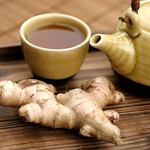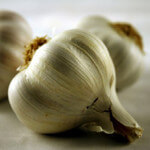 According to the American Nutrition Association, over 70 million people across the United States regularly suffer from heartburn, acid reflux, irritable bowel syndrome, abdominal pain, bloating and other gastrointestinal problems. Many of these problems are linked to food sensitivities (especially gluten and dairy), consumption of processed foods, and gut flora imbalances, while others are often simply the result of eating too quickly. Regardless of their cause, gastrointestinal problems are almost always uncomfortable to endure, and most people want to eliminate them as soon as possible.
According to the American Nutrition Association, over 70 million people across the United States regularly suffer from heartburn, acid reflux, irritable bowel syndrome, abdominal pain, bloating and other gastrointestinal problems. Many of these problems are linked to food sensitivities (especially gluten and dairy), consumption of processed foods, and gut flora imbalances, while others are often simply the result of eating too quickly. Regardless of their cause, gastrointestinal problems are almost always uncomfortable to endure, and most people want to eliminate them as soon as possible.
While it’s important to isolate the root causes of recurring gastrointestinal problems for long-term relief, effective short-term relief is available from a surprisingly humble source: herbal teas. The three herbal teas listed below are particularly effective in this regard.
Ginger Tea
The gastrointestinal benefits of ginger have been known for centuries, and contemporary studies are beginning to prove them. For example, one review published in Food & Function in June 2013 noted that ginger root is “of immense value in treating various gastric ailments.” The researchers ascribed these benefits to the root’s high concentrations of antioxidants, which help scavenge the destructive free radicals responsible for countless stomach conditions.
Ginger tea is far more agreeable to consume than raw ginger. This tea, which can be made at home by soaking ginger root (or dissolving ginger powder) into a cup of hot water, is particularly good at settling upset stomachs, treating nausea and motion sickness, and easing indigestion and acid reflux. Moreover, emerging evidence – such as the study published in Obstetrics and Gynecology in April 2005 – suggests that ginger could help treat pregnancy-induced nausea and vomiting.
Peppermint Tea
Like ginger tea, peppermint tea is another time-honored favorite for treating gastrointestinal problems. According to the University of Maryland Medical Center, peppermint has properties that soothe the muscles of the stomach and improve the flow of bile, which is the bitter-tasting fluid that aids the digestion of fats in the small intestine. This, in turn, helps the food to pass through the stomach more quickly. Consequently, peppermint tea is particularly good at treating IBS, bloating, gas, and other issues that stem from sluggish digestion.
To make peppermint tea yourself, add 1 or 2 teaspoons of dried peppermint leaves, or 1 tablespoon of fresh leaves, to a cup of hot water and let them soak for between 5 and 10 minutes. For maximum benefits, drink the tea first thing in the morning and/or after eating.
Chamomile Tea
Chamomile is one of the gentlest and safest medicinal herbs to consume, and its reputation as a stomach aid certainly rivals that of ginger and peppermint. According to a report featured in Molecular Medicine Reports in November 2010, chamomile is “used traditionally for numerous gastrointestinal conditions, including digestive disorders, ‘spasm’ or colic, upset stomach, flatulence (gas), ulcers, and gastrointestinal irritation.”
The researchers also noted that chamomile is “especially helpful in dispelling gas, soothing the stomach, and relaxing the muscles that move food through the intestines.” In this sense, the gastrointestinal benefits of chamomile closely resemble those of peppermint, suggesting that a tea made from both herbs could make an ideal post-meal digestion aid.






